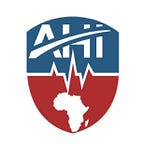Managing the ‘Brain Drain’ — WHO Code
Written by Harriet, originally an academic essay so forgive the amount of references.
Many countries that do not meet the minimum World Health Organisation (WHO) threshold of skilled health professionals needed to deliver basic health interventions fall in the South East Asia or Sub Saharan Africa Region (1,2). International migration of skilled health professionals from these countries is an important contributing factor to this shortage (3).
Though the international migration patterns of skilled health professionals are complex, it is the general movement of skilled health professionals from low income countries to middle- and high income countries is known as the ‘brain drain’ (4,5). The loss of skilled health workers disproportionately affects Sub-Saharan Africa because of the existing weak health systems(6,7).
In order to manage the critical shortages and the rights of the skilled health professional, multiple bilateral agreements and international frameworks regarding ethical health worker recruitment from developing countries have been created (1,2). Cumulating in the most recent iteration of a global code known as ‘WHO Global Code of Practice on the International Recruitment of Health Personnel’(from now‘WHO Code’ or ‘the Code’) (8). This article intends to briefly discuss the strengths and weaknesses of the WHO Code and…
